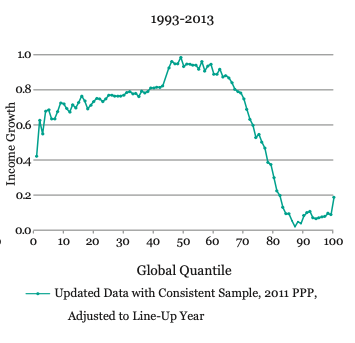
Almost 75% of billionaires are not American. en.wikipedia.org/wiki/List_of_c… 

This list has many omissions, of course, but it's directionally accurate. And illustrates a few things.
1) You don't need a US visa to make it anymore.
2) Billionaires will exist no matter what the US government does. Millionaires too.
3) Asia isn't the future, it's the present.
1) You don't need a US visa to make it anymore.
2) Billionaires will exist no matter what the US government does. Millionaires too.
3) Asia isn't the future, it's the present.
Therefore slogans like "billionaires should not exist" or "every billionaire is a policy failure" actually stem from an outdated American chauvinist view of the world.
No US policy can now stop the founders of the world from finally rising. Because wealth is decentralizing.
No US policy can now stop the founders of the world from finally rising. Because wealth is decentralizing.
With 2700+ billionaires today, and only 46 presidents in all of US history, it's actually much more feasible to become a billionaire than to become president. It's still hard, but it's also globally open in a way the presidency isn't: ~96% of the world wasn't born in the US.
As such, "anyone can become a billionaire" is much more true than "anyone can become president".
There are thousands of billionaires around the world, but only one US president, and that president must themselves come from the ~4% of global population born in the US.
There are thousands of billionaires around the world, but only one US president, and that president must themselves come from the ~4% of global population born in the US.
This rebuts the idea that economic ambition is unrealistic. It's actually more realistic than political ambition, as it's not zero-sum.
Also, usually the people recycling Steinbeck's brickbat are themselves temporarily embarrassed politicians.
Also, usually the people recycling Steinbeck's brickbat are themselves temporarily embarrassed politicians.
https://twitter.com/balajis/status/1366805024785924097
• • •
Missing some Tweet in this thread? You can try to
force a refresh











